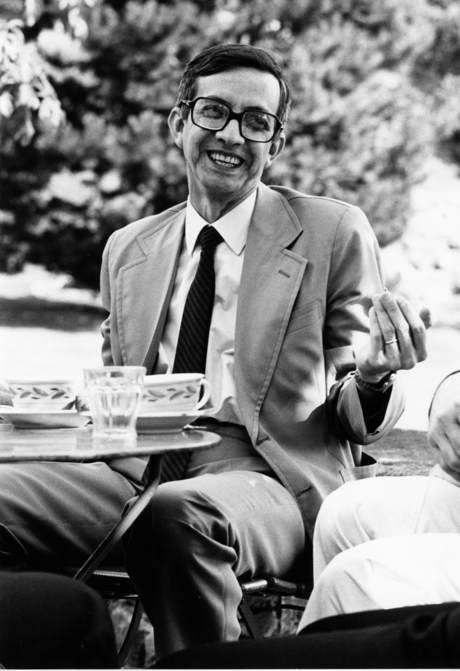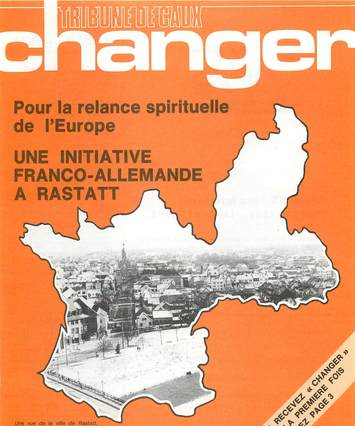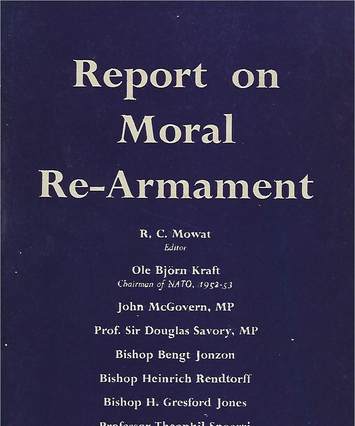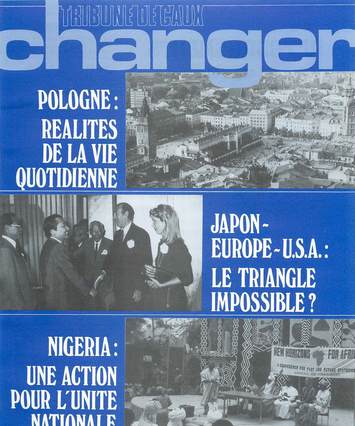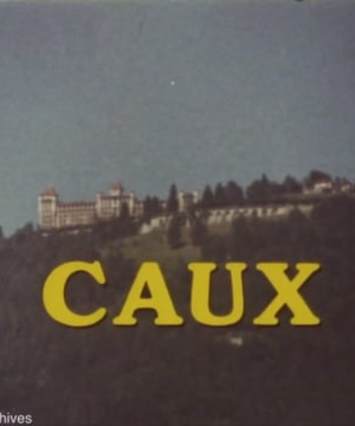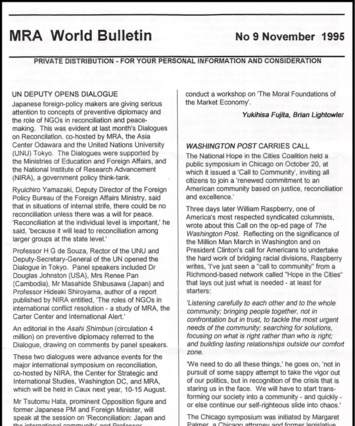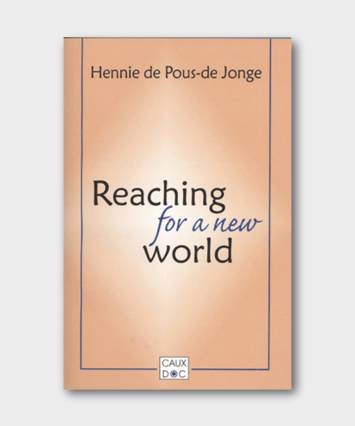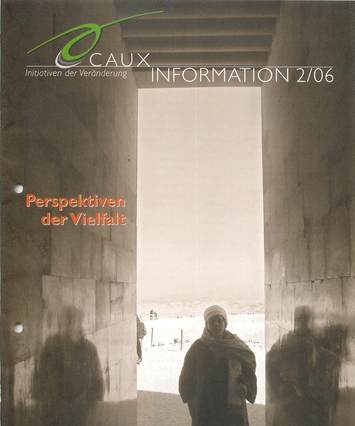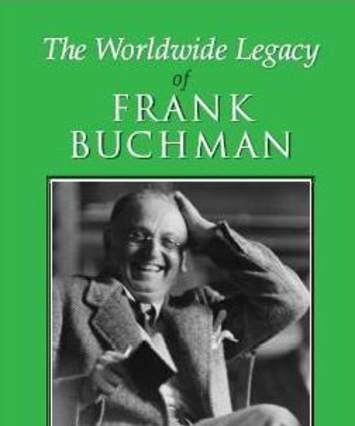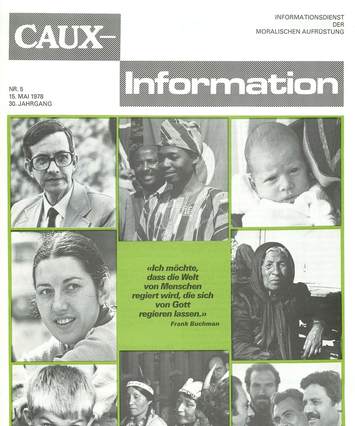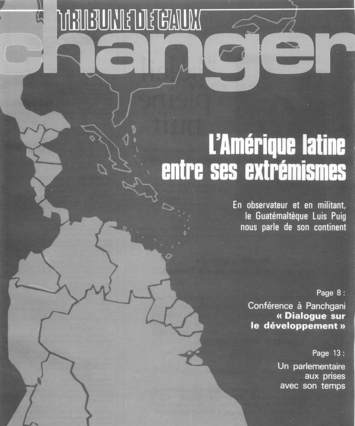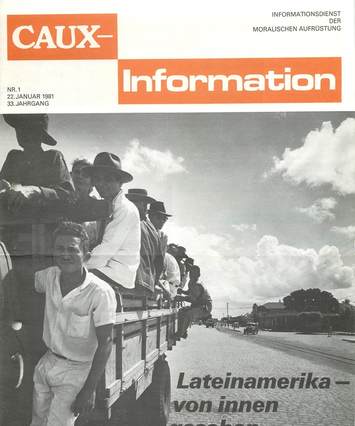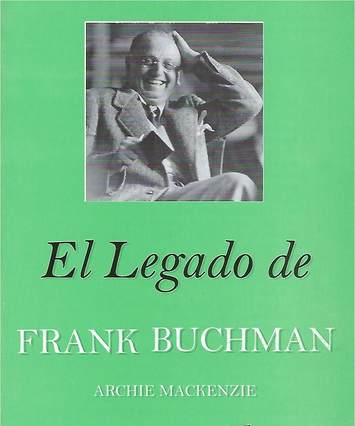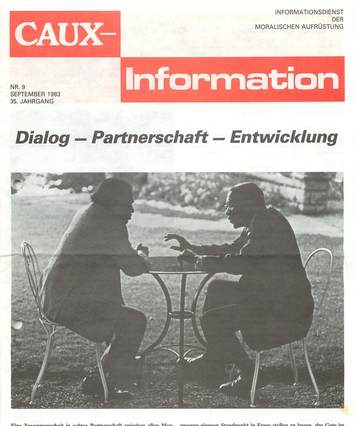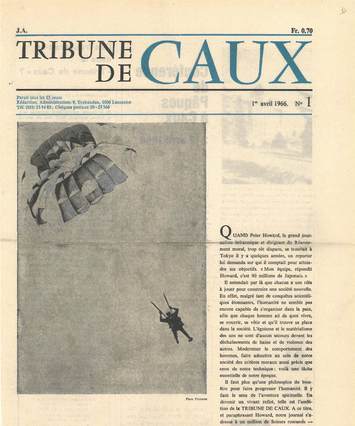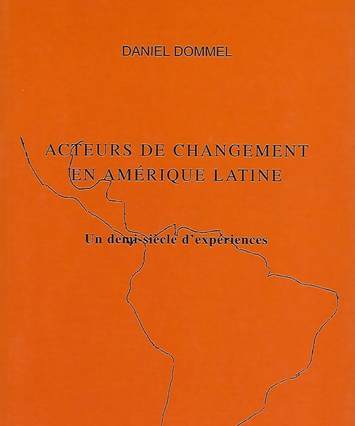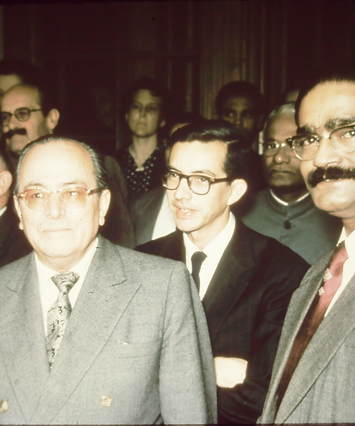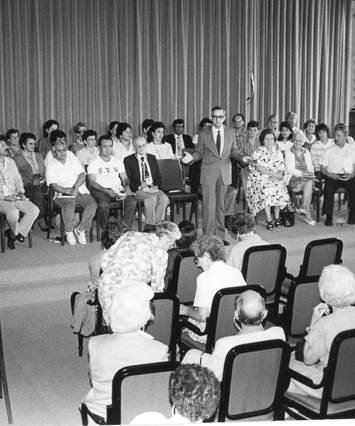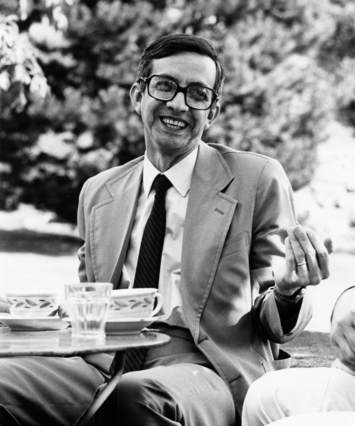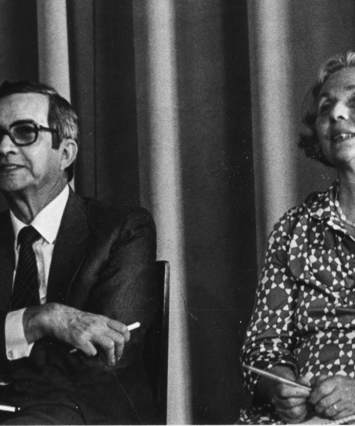This page has been automatically translated.
Young Luis Puig was one of the employees of the former PanAm Airlines in Guatemala. The local manager of the company was impressed with what he was told about the resolution of a conflict affecting the company in the United States. He invited a group of unionized employees to participate in the upcoming conferences in Mackinac. Not many employees were interested in the invitation. One of them was intrigued. It was Luis Puig, a radio broadcaster, activist and secretary of conflicts for the Party and Acción Revolucionaria. On behalf of some of his comrades, Luis proposed sending a delegation. With his radical approach, he was curious to know what was going on there.
He found a crowd of people from all over the world and from very diverse backgrounds, united in the desire to work together for a better future for the world. Could this really lead to genuine and lasting change?
Shortly after Puig's arrival, he was asked to meet with Frank Buchman. He thought this would be his chance to set the record straight, ask the 'big boss' some good dialectical questions and see how they would be handled. Buchman invited him to participate in a meeting with several airlines in which some U.S. pilots told how their companies had resolved long-standing disputes that were tearing them apart.
The next day, Puig met with an Italian communist militant, Angelo Pasetto. Here, finally, Puig thought he would find someone who would understand him. But Pasetto started talking about God. Puig jumped.
- "How can you talk to me about God, if you were trained in dialectical materialism like me?"
- "You work with electronics, don't you? When you walk into a room, turn on the light and it doesn't work, what does that tell you?"
- "Maybe the filament or some fuse is blown."
- "So, you flip the switch inside you. You see no light and you conclude that God doesn't exist instead of looking for the short circuit in your life."
- Pasetto let out a laugh. Puig stormed off.
A little later, an Englishman proposed to Puig that they spend some time together in silence and each write down the deepest thought they could think of. Puig tried to run away from the idea. The man insisted and got him to reluctantly agree to meet a little later that evening at 6:00 pm.
Around 8:00 pm, he agreed with his friends to go to the room where he should have met the Englishman. He could then say that he had gone to the room as agreed, without saying at what time exactly, and that he had found no one there. When he opened the door, there was the Englishman, still waiting for him. "Oh," He said with a broad smile and without a word of reproach. "You brought the members of your delegation. Let's all sit down together and have a quiet time." Then, disarmed, they sat down. In the minds of each guest, including that of the personnel director of PanAm 's Guatemala office, thoughts arose that touched sensitive points in their lives.
Luis Puig thought of three things he had to do: return the goods he had furtively helped himself to; mend his relationship with a girl; and apologize to his mother for his resentment toward her. His parents divorced when he was six years old. At that time, the judge decided that his sister should stay with his mother and he should stay with his father. No one explained anything to him and for a long time he believed that his mother had abandoned him. When his friends at school asked him about his mother, he didn't know what to say. He would end up saying that he had no mother. The resentment against his mother eventually turned into hatred for all of society.
Puig had come to Mackinac with social and political concerns. He returned home with personal decisions that would have broad repercussions. He went to find his mother, reconciled with her, and reestablished contact with his sister and half-brothers. He strove, wherever he had hurt people, lied or stolen, to make things right through honest apologies and restitution. At the same time, his vision of Latin America's problems evolved. Would the first condition of realistic action be that he acted in accordance with the new ideas he had had? The reforms his Marxist friends wanted seemed absolutely correct, but their methods were questionable. On the other hand, Catholic Christians, while proclaiming the social doctrine of the Church, were always united in common cause with the landowners and businessmen. Luis felt he had to give the message he received to both sides.
Puig remained active in his union. Other union leaders, some of whom had recently opposed him, came and asked him to join them in reorganizing the union movement. This would inevitably conflict with the government's wishes. It also provoked opposition from the police. Puig suggested to his comrades that each take some time individually to think about the best way to proceed, after which they would exchange their ideas. The common thought that emerged was that they should request a meeting with the head of state and speak frankly with him. It would not be easy; there were many things he would not want to hear.
The president received them in his office in the presence of armed guards. His visitors expressed what they had planned to say, in short: "You are paving the way for the worst oppression the workers of this country have ever known. We believe you are sincere. Do something to change this outcome."
"None of you collaborated with the Communists?" asked the president.
"Yes," Puig replied, "but I also learned to love my country as it is and to work to make it what it should be, not to see who is right, but what is just."
Colonel Armas asked them to sit down and ordered his guards to leave the room. "You make me trust you because you are honest. Many of those who claim to be my friends only flatter me. I think we can do business. Laws for workers are not my specialty. I am a military man. My goal was to remove the communists from power."
To everyone's surprise, he confirmed the previous social laws, introducing only appropriate measures to prevent notorious extremists from taking over the leadership of the unions.
A little later he called Puig again. "Tell me what changed you," he asked. Puig told him and proposed to meet with some of his friends. The president received them at the Presidential Palace. He had Puig come back again. He was clearly looking for a sound philosophy to guide his policy. "There is a new conference being held at Mackinac," Puig said. "Why don't you send someone you trust?" "I will send a representative of the opposition," Armas replied, and so he did.
In 1954, Luis Puig was one of the founders of the Guatemalan Trade Union Congress and in 1956 he was sent as a delegate to the International Labor Organization in Geneva. Puig was looking for what sense he could make of this relationship with a dictator, a man who, at the same time, was genuinely looking for a way forward and who had begun to take steps to eliminate corruption within the government.
On July 23, 1957 Castillo Armas was assassinated by one of his bodyguards, who then committed suicide. No motive for the crime was discovered. Guatemala was plunged into a long period of instability. Puig considered that, for the moment, he could do no more in his own country to follow the course he had set for himself and to which he wished to devote all his energies from now on. He emigrated to Brazil where he dedicated himself until the end of his days to train Brazilian citizens in the values of Moral Rearmament -MR- now Initiatives of Change -IdeC-, at the Center for Moral Rearmament in Petrópolis.

